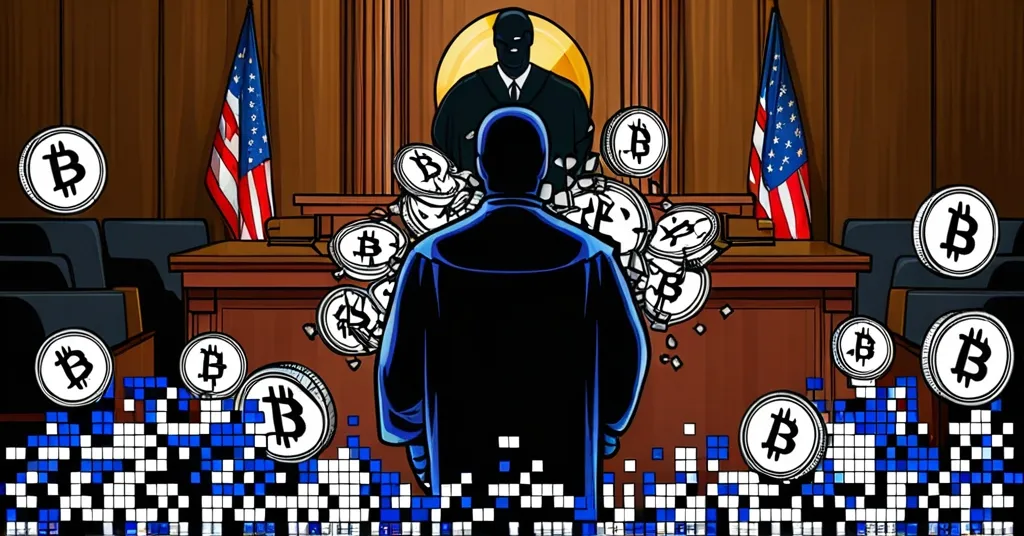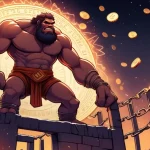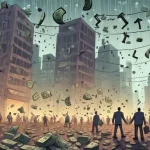Do Kwon Pleads Not Guilty to Fraud Charges After TerraUSD Collapse

Do Kwon Pleads Not Guilty to U.S. Fraud Charges After Extradition from Montenegro
Do Kwon, the co-founder of Terraform Labs, has pleaded not guilty to multiple fraud charges following his extradition from Montenegro to the U.S. The charges include securities fraud, wire fraud, commodities fraud, conspiracy, and money laundering conspiracy, stemming from the collapse of TerraUSD (UST), a stablecoin designed to maintain a steady value but which failed in May 2022.
- Do Kwon pleads not guilty
- Charged with multiple fraud counts
- TerraUSD collapse and market impact
The U.S. Department of Justice has levied serious accusations against Kwon, claiming he deceived investors about the stability of UST, a digital currency intended to hold a $1 value through an algorithm known as the Terra Protocol. This protocol was supposed to maintain stability by automatically minting and burning LUNA tokens, the cryptocurrency tied to UST. However, the allegations suggest that behind this facade, Kwon and a high-frequency trading firm, Jump Trading, artificially propped up UST’s value by injecting millions into the ecosystem. This scheme, detailed in a 79-page indictment, paints a picture of a man manipulating his digital currency while leaving investors in the dark.
The collapse of TerraUSD in May 2022 was like watching a house of cards crumble, leaving investors with what felt like digital confetti instead of a reliable currency. The ripple effect was profound, with LUNA soaring to a $50 billion valuation before crashing, and even Bitcoin couldn’t escape the fallout, plummeting as both retail and institutional investors faced significant losses. The indictment also sheds light on a money laundering conspiracy, alleging that Kwon funneled funds through various accounts to obscure their illicit origins.
Before his extradition, Kwon faced legal issues in Montenegro for using forged travel documents. The Montenegrin court’s decision to prioritize the U.S. request over South Korea’s added complexity to his legal saga, highlighting the growing international cooperation in addressing crypto-related crimes.
While Kwon’s case stands out, it’s part of a larger narrative in the crypto world, where innovation and fraud often intertwine. Other high-profile cases, like those of Sam Bankman-Fried of FTX fame and Alex Mashinsky of Celsius Network, serve as stark reminders of the risks inherent in the industry. Terraform Labs declared bankruptcy in January 2023, leaving investors with a bitter taste and slim hopes of recovery. Kwon himself reached a hefty $4.55 billion settlement with the SEC in June 2024, which included an $80 million fine and a ban from participating in any crypto activities. Yet, these civil penalties are minor compared to the potential prison time Kwon faces if convicted of the criminal charges.
The collapse of TerraUSD underscores a critical flaw in its design. Nearly 70% of UST’s circulating supply was deposited in the Anchor protocol, which offered unsustainable yields. This concentration created systemic risk, and when Anchor reduced its interest rates, the system entered a death spiral. This event highlights the importance of maintaining market confidence in algorithmic stablecoins, as once this confidence wavers, the system can quickly unravel.
As advocates for decentralization and freedom, we must acknowledge both the bright avenues and the dark alleys of the crypto space. While the optimism surrounding blockchain technology and cryptocurrencies remains, cases like Kwon’s serve as a reminder of the real risks and challenges. The crypto industry must evolve, fostering innovation while rooting out the scammers and charlatans who threaten its integrity. Bitcoin, with its decentralized and robust design, stands in stark contrast to projects like TerraUSD, reinforcing the importance of true decentralization in maintaining trust and stability.
Key Questions and Takeaways:
- What are the charges against Do Kwon?
Do Kwon faces charges of securities fraud, wire fraud, commodities fraud, conspiracy, and money laundering conspiracy.
- Why is TerraUSD significant to the case?
TerraUSD, or UST, is central to the allegations against Kwon because he’s accused of misleading investors about its stability, which led to its collapse and widespread market disruption.
- How did the TerraUSD collapse affect the cryptocurrency market?
The collapse of UST triggered a domino effect, causing the devaluation of Luna and significant declines in major tokens like Bitcoin, impacting both retail and institutional investors.
- What role did Jump Trading allegedly play in the TerraUSD ecosystem?
Jump Trading is accused of injecting millions into the TerraUSD ecosystem to artificially sustain its value, according to the indictment.
- What are the broader implications for the cryptocurrency industry?
Do Kwon’s case underscores the need for greater accountability and regulatory oversight within the cryptocurrency industry to protect investors and maintain market integrity.



